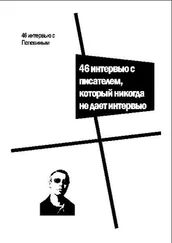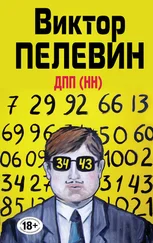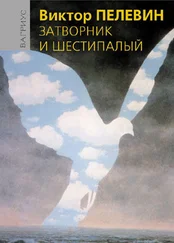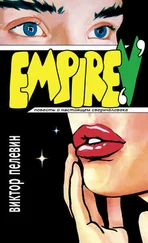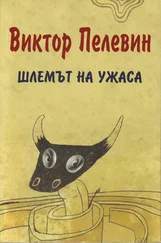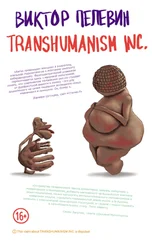Виктор Пелевин - Buddha's Little Finger
Здесь есть возможность читать онлайн «Виктор Пелевин - Buddha's Little Finger» весь текст электронной книги совершенно бесплатно (целиком полную версию без сокращений). В некоторых случаях можно слушать аудио, скачать через торрент в формате fb2 и присутствует краткое содержание. Жанр: Современная проза, на английском языке. Описание произведения, (предисловие) а так же отзывы посетителей доступны на портале библиотеки ЛибКат.
- Название:Buddha's Little Finger
- Автор:
- Жанр:
- Год:неизвестен
- ISBN:нет данных
- Рейтинг книги:5 / 5. Голосов: 1
-
Избранное:Добавить в избранное
- Отзывы:
-
Ваша оценка:
- 100
- 1
- 2
- 3
- 4
- 5
Buddha's Little Finger: краткое содержание, описание и аннотация
Предлагаем к чтению аннотацию, описание, краткое содержание или предисловие (зависит от того, что написал сам автор книги «Buddha's Little Finger»). Если вы не нашли необходимую информацию о книге — напишите в комментариях, мы постараемся отыскать её.
Buddha's Little Finger — читать онлайн бесплатно полную книгу (весь текст) целиком
Ниже представлен текст книги, разбитый по страницам. Система сохранения места последней прочитанной страницы, позволяет с удобством читать онлайн бесплатно книгу «Buddha's Little Finger», без необходимости каждый раз заново искать на чём Вы остановились. Поставьте закладку, и сможете в любой момент перейти на страницу, на которой закончили чтение.
Интервал:
Закладка:
Kawabata clapped his hands and laughed.
‘More sake?’ he asked.
‘You know,’ replied Serdyuk, ‘I’d be glad to, but perhaps we could do the interview first? I get drunk very quickly.’
‘The interview is already over,’ said Kawabata, filling the glasses. ‘Let me tell you all about it. Our firm has existed for a very long time, so long in fact that if I told you, I’m afraid you wouldn’t believe me. Our traditions are more important to us than anything else. We can only be approached, if you will allow me to use a figurative expression, through a very narrow door, and you have just stepped through it with confidence. Congratulations.’
‘What door’s that?’ asked Serdyuk.
Kawabata pointed to the print.
‘That one,’ he said. ‘The only one that leads into Taira incorporated.’
‘I don’t really understand,’ said Serdyuk. ‘As far as I was aware, you’re traders, and for you…’
Kawabata raised an open palm.
‘I am frequently horrified to observe,’ he said, ‘that half of Russia has already been infected with the repulsive pragmatism of the West. Present company excepted, of course, but I have good reason for saying so.’
‘But what’s wrong with pragmatism?’ asked Serdyuk.
‘In ancient times,’ said Kawabata, ‘in our country officials were appointed to important posts after examinations in which they wrote an essay on beauty. And this was a very wise principle, for if a man has an understanding of that which is immeasurably higher than bureaucratic procedures, then he will certainly be able to cope with such lower matters. If your mind has penetrated with such lightning swiftness the mystery of the ancient allegory encoded in the drawing, then could all those price lists and overheads possibly cause you the slightest problem? Never. Moreover, after your answer I would consider it an honour to drink with you. Please do not refuse me.’
Serdyuk downed another one and unexpectedly found he had fallen into reminiscing about the previous day - it seemed he’d gone on from Pushkin Square to the Clean Ponds, but it wasn’t clear to him why: all that was left in his memory was the monument to Griboedov, viewed in an odd perspective, as though he were looking at it from underneath a bench.
‘Yes,’ said Kawabata thoughtfully, ‘but if you think about it, it’s a terrible picture. The only things that differentiate us from animals are the rules and rituals which we have agreed on among ourselves. To transgress them is worse than to die, because only they separate us from the abyss of chaos which lies at our very feet - if, of course, we remove the blindfold from our eyes.’
He pointed to the print.
‘But in Japan we have another tradition - sometimes, just for a second, deep within ourselves - to renounce all traditions, to abandon, as we say, Buddha and Mara, in order to experience the inexpressible taste of reality. And this second sometimes produces remarkable works of art…’
Kawabata glanced once again at the man with the swords standing on the edge of the abyss and sighed.
‘Yes,’ said Serdyuk. ‘Life here nowadays is enough to make a man give up on everything too. And as for traditions… well, some go to different kinds of churches, but of course most just watch the television and think about money.’
He sensed that he had seriously lowered the tone of the conversation and he needed quickly to say something clever.
‘Probably,’ he said, holding out his empty glass to Kawabata,’ the reason it happens is that by nature the Russian is not inclined to a search for metaphysical meaning and makes do with a cocktail of atheism and alcoholism which, if the truth be told, is our major spiritual tradition.’
Kawabata poured again for himself and Serdyuk.
‘On this point I must take the liberty of disagreeing with you,’ he said. ‘And this is the reason. Recently I acquired it for our collection of Russian art.’
‘You collect art?’ asked Serdyuk.
‘Yes,’ said Kawabata, rising to his feet and going over to one of the sets of shelves. ‘That is also one of our firm’s principles. We always attempt to penetrate the inner soul of any nation with whom we do business. It is not a matter of wishing to extract any additional profit in this way by understanding the… What is the Russian word? Mentality, isn’t it?’
Serdyuk nodded.
‘No,’ Kawabata continued, opening a large file. It’s more a matter of a desire to raise to the level of art even those activities that are furthest removed from it. You see, if you sell a consignment of machine-guns, as it were, into empty space, out of which money that might have been earned any way at all appears in your account, then you are not very different from a cash register. But if you sell the same consignment of machine-guns to people about whom you know that every time they kill someone they have to do penance before a tripartite manifestation of the creator of the world, the the simple act of selling is exalted to the level of art and acquires a quite different quality. Not for them, of course, but for you. You are in harmony, you are at one with the Universe in which you are acting, and your signature on the contract acquires the same existential status… Do I express this correctly in Russian?’
Serdyuk nodded.
‘The same existential status as the sunrise, the high tide or the fluttering of a blade of grass in the wind… What was I talking about to begin with?’
‘About your collection.’
‘Ah, that’s right. Well then, would you like to take a look at this?’
He held out to Serdyuk a large sheet of some material covered with a thin protective sheet of tracing-paper.
‘But please, be careful.’
Serdyuk took hold of the sheet. It was a piece of dusty greyish cardboard, apparently quite old. A single word had been traced on it in black paint through a crude stencil - ‘God’.
‘What is it?’
‘It’s an early-twentieth-century Russian conceptual icon,’ said Kawabata. ‘By David Burliuk. Have you heard of him?’
‘I’ve heard the name somewhere.’
‘Strangely enough, he’s not very well known in Russia,’ said Kawabata. ‘But that’s not important. Just look at it!’
Serdyuk took another look at the sheet of cardboard. The letters were dissected by white lines that must have been left by the strips of paper holding the stencil together. The word was crudely printed and there were blobs of dried paint all around it the overall impression was strangely reminiscent of a print left by a boot.
Serdyuk looked up at Kawabata and drawled something that sounded like ‘Ye-ea-es’.
‘How many different meanings there are here!’ Kawabata continued. ‘Wait a moment, don’t speak - I’ll try to describe what I see, and if I miss anything, then you can add it. All right?’
Serdyuk nodded.
‘Firstly,’ said Kawabata, ‘there is the very fact that the word «God» is printed through a stencil. That is precisely the way in which it is imprinted on a person’s consciousness in childhood -as a commonplace pattern identical with the pattern imprinted on a myriad other minds. But then, a great deal depends on the quality of the surface to which it is applied - if the paper is rough and uneven, the imprint left on it will not be sharp, and if there are already other words present, it is not even clear just what mark will be left on the paper as a result. That’s why they say that everyone has his own God. And then, look at the magnificent crudeness of these letters - their corners simply scratch at your eyes. It’s hard to believe anyone could possibly imagine this three-letter word to be the source of the eternal love and grace, the reflection of which renders life in this world at least partially tolerable. But on the other hand, this print, which looks more like a brand used for marking cattle than anything else, is the only thing a man has to set his hopes on in this life. Do you agree?’
Читать дальшеИнтервал:
Закладка:
Похожие книги на «Buddha's Little Finger»
Представляем Вашему вниманию похожие книги на «Buddha's Little Finger» списком для выбора. Мы отобрали схожую по названию и смыслу литературу в надежде предоставить читателям больше вариантов отыскать новые, интересные, ещё непрочитанные произведения.
Обсуждение, отзывы о книге «Buddha's Little Finger» и просто собственные мнения читателей. Оставьте ваши комментарии, напишите, что Вы думаете о произведении, его смысле или главных героях. Укажите что конкретно понравилось, а что нет, и почему Вы так считаете.

